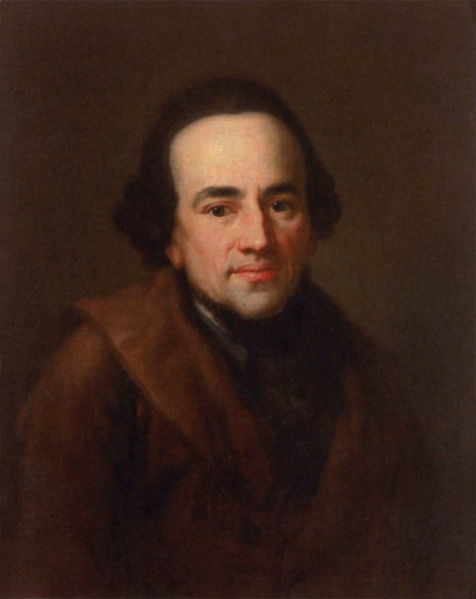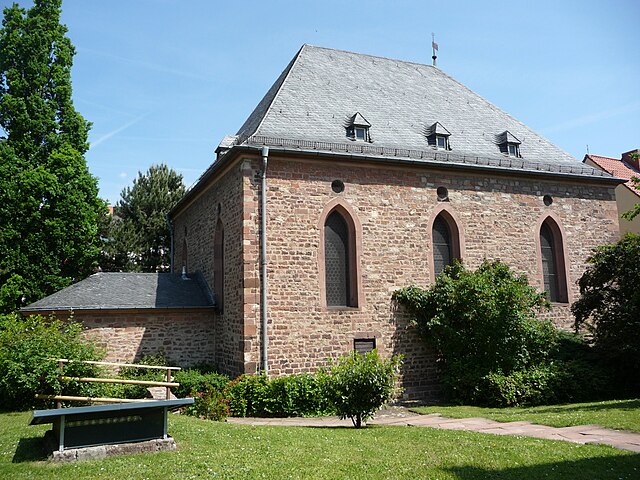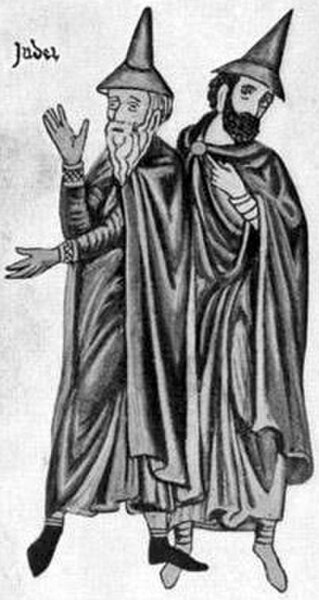Moses Mendelssohn was a German-Jewish philosopher and theologian. His writings and ideas on Jews and the Jewish religion and identity were a central element in the development of the Haskalah, or 'Jewish Enlightenment' of the eighteenth and nineteenth centuries.
Born to a poor Jewish family in Dessau, Principality of Anhalt, and originally destined for a rabbinical career, Mendelssohn educated himself in German thought and literature. Through his writings on philosophy and religion he came to be regarded as a leading cultural figure of his time by both Christian and Jewish inhabitants of German-speaking Europe and beyond. His involvement in the Berlin textile industry formed the foundation of his family's wealth.
Portrait by Anton Graff (1773)
Mendelssohn, Lavater and Lessing, in an imaginary portrait by the Jewish artist Moritz Daniel Oppenheim (1856). Collection of the Judah L. Magnes Museum
Moses Mendelssohn's (reconstructed) grave in Berlin
Moses Mendelssohn's glasses, in the Jewish Museum, Berlin
History of the Jews in Germany
The history of the Jews in Germany goes back at least to the year 321 CE, and continued through the Early Middle Ages and High Middle Ages when Jewish immigrants founded the Ashkenazi Jewish community. The community survived under Charlemagne, but suffered during the Crusades. Accusations of well poisoning during the Black Death (1346–53) led to mass slaughter of German Jews, while others fled in large numbers to Poland. The Jewish communities of the cities of Mainz, Speyer and Worms became the center of Jewish life during medieval times. "This was a golden age as area bishops protected the Jews, resulting in increased trade and prosperity."
Worms Synagogue
Jews wearing the pileus cornutus depicted ca. 1185 in the Hortus deliciarum of the Abbess Herrad of Landsberg.
Mobs of French and German Crusaders led by Peter the Hermit ravaged Jewish communities in Speyer, Worms, and Mainz during the Rhineland massacres of 1096.
Holy Roman Emperor Henry VII meeting Jews in Rome, 1312








